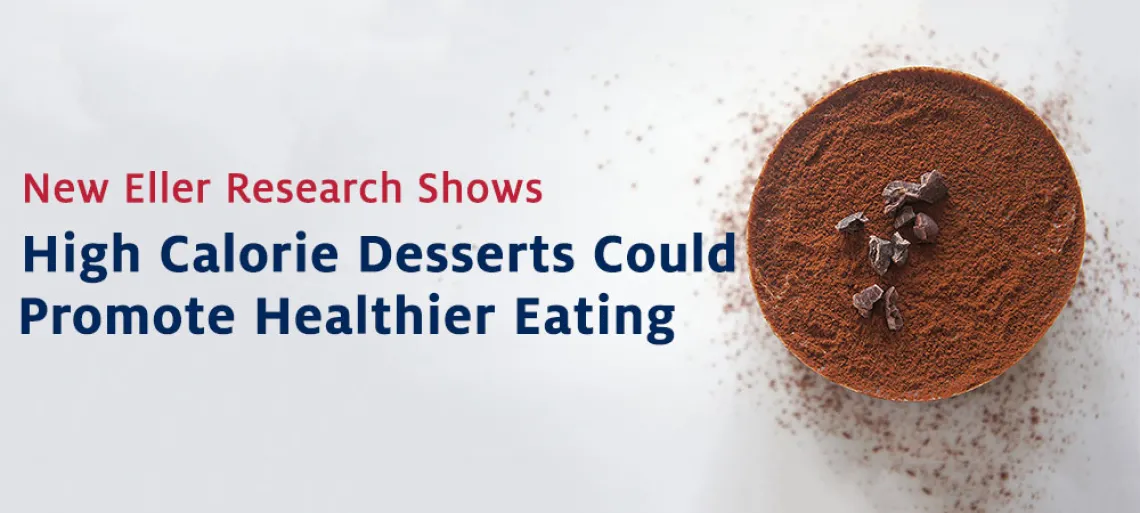New Eller Research Shows High-Calorie Desserts Could Promote Healthier Eating

Turns out you can have your cake and eat it too—and it might lead to healthier eating habits.
Research conducted by Martin Reimann, assistant professor of marketing, suggests that choosing an indulgent dessert first may lead to eating lower calorie meals. The research was published in the American Psychological Association and picked up by new sources such as Time Magazine and the New York Post.
A series of four experiments were conducted both in a cafeteria and on a mock food delivery website to see if choosing a healthy or unhealthy dessert at the beginning of a meal would influence the main and side dishes chosen by the participants.
When an indulgent or healthy dessert (lemon cheesecake, say, versus fresh fruit) was placed at the beginning of a university cafeteria line, diners that chose the cheesecake would then chose lower-calorie main or side dishes and consume fewer calories than diners who chose the fruit.
“We believe diners who chose the indulgent dessert first then picked healthier main and side dishes to make up for their high-calorie dessert,” Reimann says. “Diners who picked the healthier dessert may have thought they already had done a good deed for their bodies so they deserved higher-calorie food further down the cafeteria line.”
This result was not consistent with individuals that had a lot on their minds. If a participant was distracted, he or she chose the indulgent dessert first and continued to make unhealthy choices for rest of the meal.
An average of 30 percent fewer calories were consumed by participants that chose the indulgent dessert first. The meals were of a fixed-price so cost of the desserts wasn’t a factor.

